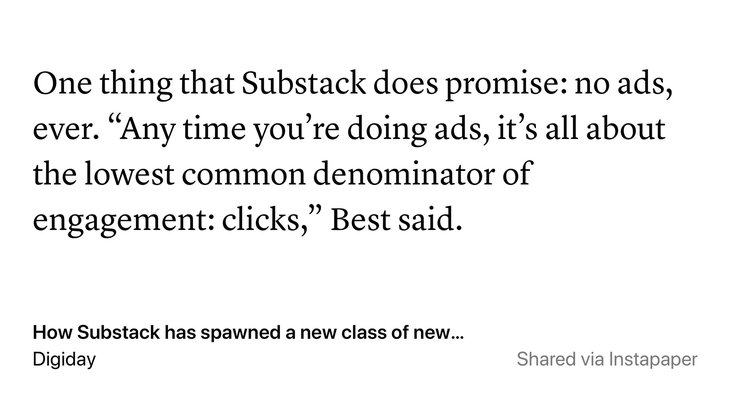Are you sitting on a goldmine of data?
Short answer? Yes.
I’ve been thinking a lot about the data publishers create. There’s a lot of it, and publishers can collect even more. It’s been said many times: Data is the new gold. My take? There’s no way around it. Publishing businesses of the future will be heavily valued on their ability to manage and leverage their data.
The data you create
In the interview above with iZooto, the point we discussed is that owning your content should be a no brainer – from your own domain to your own publishing platform. Using open source tools like WordPress enables you to have the greatest freedom over your own content.
Publishers or creators who build a presence on third-party platforms like Medium or Substack are essentially renting the space. They don’t really own their content. They can’t fully control their future. It can be taken away without their control in extreme cases.
When thinking about the data you create, it goes beyond just the posts a writer creates. Think about what your users are creating for you.
While the comment section may be thought of as a cesspool, a well moderated and curated comment section provides a number of great attributes to a site. It builds significant audience loyalty (especially if elements of community and gamification are leveraged). Comments are a social signal to editorial teams and other readers of more popular posts and even help in signalling to search engines what content is resonating with users.
So while it’s easy to offload your comment section to Facebook, Disqus or similar, you’re actually handing over valuable data that you have less control and flexibility over.
The data you collect
Last year at Mumbrella’s Publish conference in Sydney, I spoke about personalisation and first-party data collection for publishers. I argued that digital publishers are actually uniquely positioned to build much richer data on their audience by a combination of factors, from long traffic, implicitly building assumptions, or explicitly asking questions to better understand their audience.
Ten months on, nothing has changed, but there are more reasons why this can help your bottom line.
Publishers can make more money selling better ads with better data
To continue to pick on Substack for a second, in an article on Digiday this week they were quoted on the topic of being ad-funded:

First of all, that quote and broader mindset demonstrates the inherent problem with platforms like Substack, you don’t have the option, even if you wanted to run an ad – you couldn’t.
Secondly, it’s a pretty bold oversimplification. Publishers still have one of the strongest standings with readers to sell accurate, effective advertisements. Substack is right: If the comparison is against ineffective ads with single digit CPMs – that is the lowest common denominator.
So that’s really my question to you…
- How well do you know your existing audience?
- How much time do you spend on learning more or doing more with what you have now, compared to trying to grow traffic?
While it’s always a healthy endeavour to focus on SEO and growing your traffic, chances are there are probably a lot of ways you’re not monetising your current audience.
Even if you’re not really collecting much data on your audience, other companies may be doing this in the shadows. It was reported a couple of weeks ago that a group of B2B publishers in the U.S. have signed an open letter prompting for an open discussion on ad tech companies essentially building profiles of user data.
Better data on your audience will give you better insights.
Better insights into your audience will let you sell or run better advertisements.
Better advertisements are more helpful to your audience.
Better advertisements command better rates.
Sean Griffey, CEO of Industry Dive, tweeted recently that the Industry Dive group would move from calling their portfolio of sites ad supported to marketing supported.
This is a distinct difference especially for niche and specialty publishers that have more segmented audiences to begin with.
The key takeaway I want to convey is that you should dedicate some time to thinking about what data you already have, what more you can be doing and all the opportunities that knowledge will unlock.
It’s a holistic way of thinking. From the data you create, such as your articles and how you tag and categorise them, to what your audience is creating for you in the comment sections. Through to actively tracking their email behaviour and their reading behavior.
If it’s something you’re doing, or want to do, or have any questions, hit reply and let me know. I’d love to know more about how you’re thinking about it.

